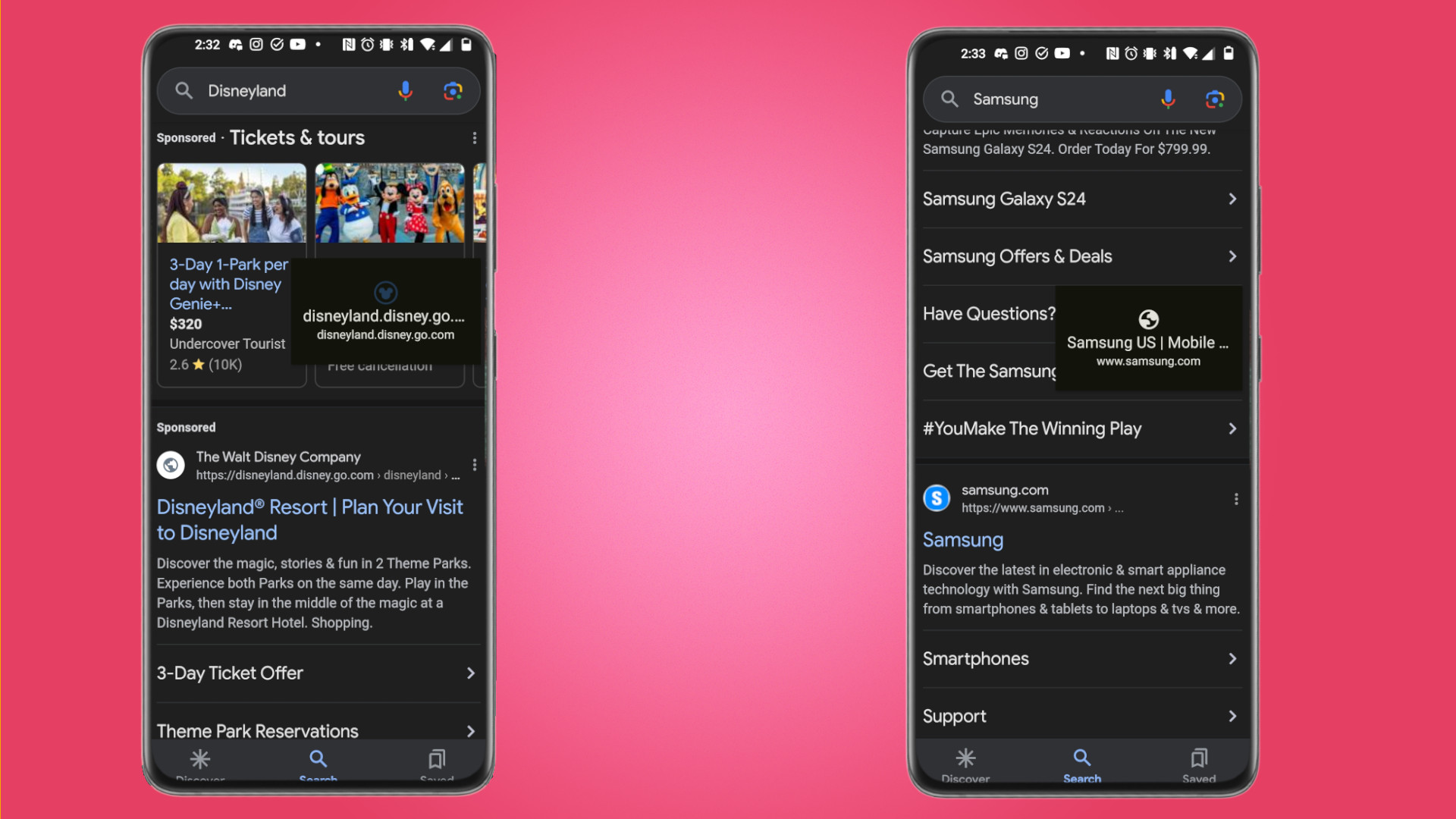Google is rolling out a new feature to Chrome on Android called Minimized Custom Tabs, which, as of now, only works on certain first-party apps. Upon opening a link, you’ll find a downward-facing arrow in the top bar next to the close button, and tapping it shrinks the web page into a “floating picture-in-picture window” in the lower right corner of your screen.
Tapping the window expands it to full screen, returning you to the source website. Better yet, you can drag it almost anywhere on the screen, and if you want to close it, you can pull it towards the bottom.
In a recent Chromium Blog post, Google wrote that the update “enables multi-tasking across surfaces” and it serves as a handy tool that lets you save a page for later viewing while you browse the internet, check your email, or are in another app. The feature itself is very similar to YouTube Premium’s PiP (picture-in-picture) mode. You won't be forced to launch Chrome and open a new tab. You are limited to just one mini window at a time, meaning you can’t cover a whole screen with them.
Supportive tool
It’s important to mention that you can’t actually see the contents of a page in the mini window, and what is shown depends on the website. Some sites, when shrunk, display the name of the page, the URL, and the logo for it. However, on others, like Samsung's home page, there is no logo. It's just the icon of a globe.

As stated earlier, Minimized Custom Tabs works on a handful of apps. We managed to get the windows to appear from links opened on Gmail and Google Search. Chrome itself doesn’t have the function. Tapping a link on the browser simply opens another tab. The same thing happened when launching on a website on Google Maps, Drive, and Calendar – it just opens a tab on Chrome.
From what we’ve seen, Minimized Custom Tabs is primarily a supportive feature for first-party Google apps. As restrictive as that may be, it is still a highly useful tool, one we hope will see wider implementation.
To try out the update yourself, download Chrome version M124 on your Android phone and you're good to since it’s turned on by default. If you'd like though, you can disable it at any time by tapping the gear icon in the mini window.
There is a crucial distinction to make about the patch. It’s actually being applied to the Chromium engine, meaning any browser built on Chromium, like Microsoft Edge or Opera, could one day introduce the Custom Tabs to their software. Third-party support, however, depends on the developers choosing to adopt the new function.
While we have you, be sure to check out TechRadar's list of the best Android phones for 2024.
No comments:
Post a Comment